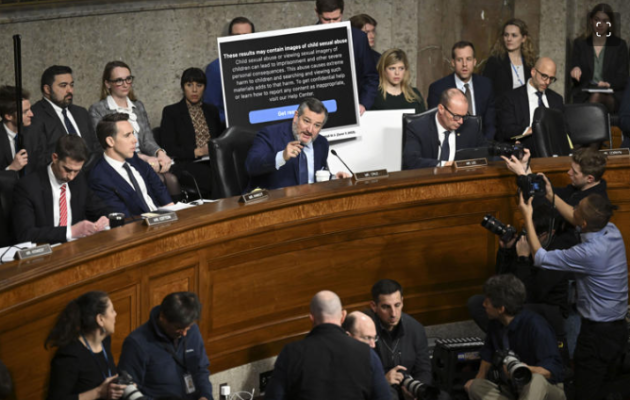Supreme Court Grapples with States’ Control Over Social Media Fate

In the ever-evolving landscape of the digital era, the Supreme Court is set to embark on a historic decision that could redefine the boundaries of states’ influence over social media platforms. At the heart of the matter are controversial laws enacted in Texas and Florida, sparking a showdown between conservative states aiming to curb perceived censorship by tech giants and the tech industry, which contends that such regulations violate the First Amendment. The cases present a critical juncture where the highest court will determine whether states or tech companies wield the authority to dictate the rules governing popular social networks. As the court delves into the constitutionality of these laws, the outcome may shape the future of online expression and have far-reaching implications for American democracy.
The clash between states and tech companies over the regulation of social media has reached the pinnacle of the U.S. legal system, with the Supreme Court poised to unravel the intricacies of a landmark Texas law and its counterpart in Florida. At the core of the legal battle lies a fundamental question: can states control the destiny of social media platforms, setting rules that govern the content and accounts within their digital domains?
The genesis of this legal saga traces back to a Reddit user’s dispute with the platform over the use of a derogatory term in 2022. The user’s subsequent legal action under the Texas law, which prohibits social media companies from removing posts or accounts based on viewpoint, sets the stage for a broader examination of states’ authority in the realm of online expression.
On Monday, the Supreme Court will commence oral arguments to scrutinize the constitutionality of the Texas law, along with a parallel Florida law that restricts platforms from suspending the accounts of political candidates or media publications. These cases signal a pivotal moment in the ongoing tension between conservative leaders’ concerns of political bias and the tech industry’s defense of free speech principles.
The legal battleground is drawn along ideological lines, with Republican leaders advocating for state interventions to counter perceived censorship by social media giants. Conversely, tech companies, represented by the trade group NetChoice, argue that these laws infringe on the First Amendment, potentially paving the way for a fragmented internet landscape, or “splinternet,” dictated by varying state regulations.
The implications of the Supreme Court’s ruling extend beyond the confines of the digital realm. With social networks playing a central role in political discourse, the decision holds significant consequences for the future of American democracy. The outcome, expected by late June, could influence federal and state endeavors to regulate social media on issues ranging from children’s safety to artificial intelligence.
The Biden administration, often critical of Silicon Valley, has taken an unexpected stance by siding with tech companies in its brief to the Supreme Court. This unusual alignment of political positions underscores the complexity of the issues at hand, as states grapple with defining the boundaries of their regulatory authority over the digital public square.
As the legal battle unfolds, the Supreme Court must navigate through the divergent interpretations of laws rooted in an era of newsprint and telegraphs, now applied to the dynamic landscape of social media. The tech industry contends that platforms should be treated like newspapers, with the right to exercise “editorial discretion” over the content on their services. On the other hand, states argue that these laws regulate actions, not speech, and assert their right to prevent discrimination by social media gatekeepers.
Also Read : Navigating the Online World: A Guide for Parents and Teens
The high-stakes nature of these cases prompts legal experts to emphasize the need for a nuanced decision that considers the rapidly evolving nature of social networks. The court’s ruling, whether in favor of states or tech companies, will undoubtedly shape the future trajectory of online expression, influencing not only the business dynamics of social media but also the broader contours of democratic discourse in the United States.




